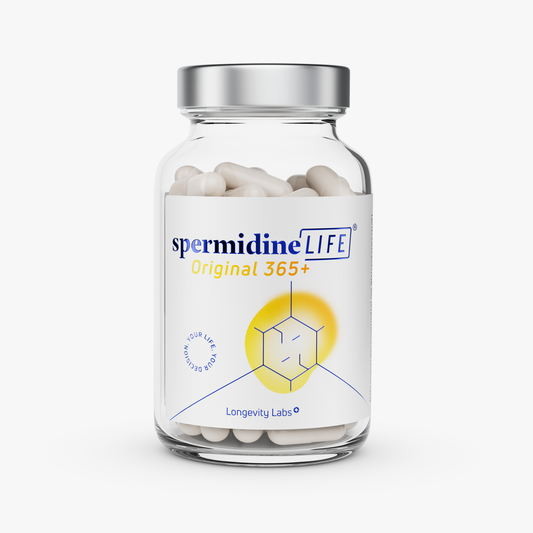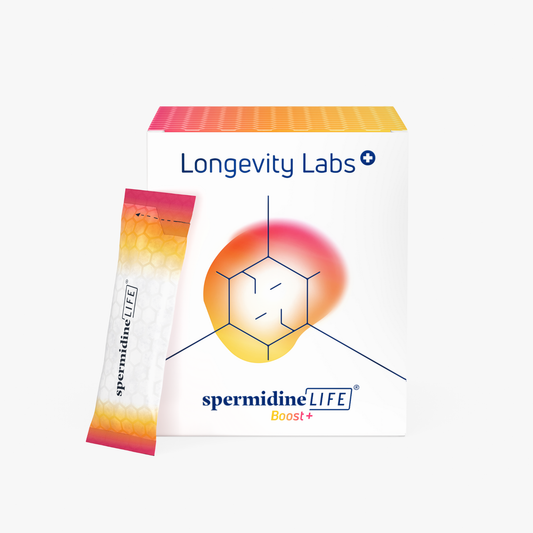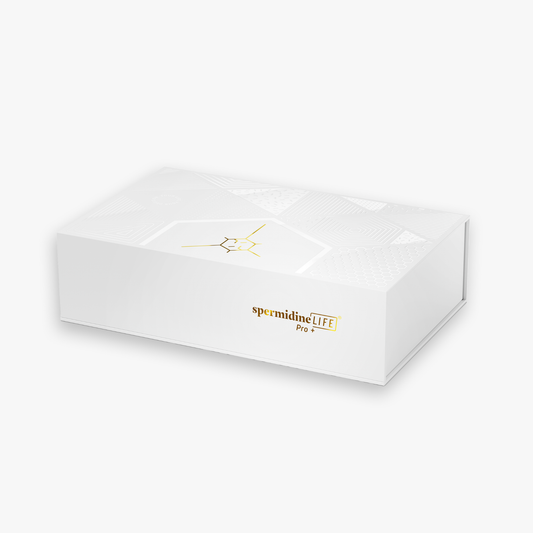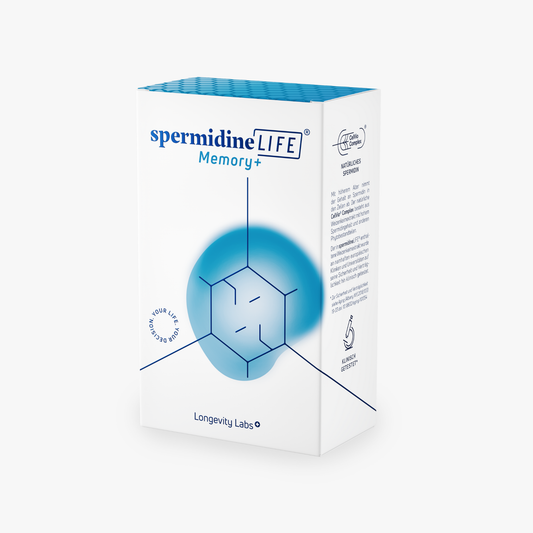
Autophagy and Its Triggers—Supporting Our Body’s Own Cell Recycling Program
Fasting,Science, TLL LongevityLabsNature is good at recycling waste products. So is our body. It has its very own program for our cells: autophagy. It reuses the waste of our cells and makes sure that old cells renew themselves. Autophagic activity decreases as we age—but we can support our body’s recycling program with targeted measures.
Every second, about 50,000 cells die in our body. We hardly notice this phenomenon since the same number of new cells is formed again at the same time. The cell waste of the old cells is used to form new cells. This recycling program of our own body is called autophagy. It ensures that damaged or useless cell components are broken down and reused.
Supporting Autophagy
While we are alive, autophagy is permanently active at a certain level. As we age or if we are under additional pressure—such as stress—our cell renewal capacity decreases. However, we can counter this with targeted measures and support our body’s recycling program. Today we have 3 tips on boosting autophagy for you:
1. Exercise
Regular exercise is recommended time and again for health. We already know that! We also know that exercise activates the circulatory system, blood vessels widen, hormones are secreted, and blood flow is increased throughout the body. You may not know that exercise has an effect on the smallest parts of our body—the cells. Exercise helps our body’s cells to stay healthy and active.
High-intensity cyclical interval or resistance training is especially suitable to support the body’s own cell recycling and renewal process with targeted training. So what’s the best way to exercise to support autophagy? One training unit of approx. 30 minutes every other day! This way, we can fight reduced cell renewal and provide optimal support for our bodies in challenging times, for example when stressed.
2. Fasting
Nutrition and autophagy are connected. Cell biologist Yoshinori Ohsumi received the Nobel Prize in 2016 for his research in this area. He was the first to prove that autophagy is activated by a reduction of food intake. The so-called autophagic process is initiated if the energy intake from foods is reduced to 10-50% for 14 hours or more. Thanks to this calorie restriction, damaged cell organelles are coated with a membrane and “digested”. That means, autophagy starts.
Interval fasting or intermittent fasting is a current dietary trend that is based on this. Unlike other dietary trends, intermittent fasting does not focus on special foods but on time. People eat “normal” and healthy foods but interrupt their diet for several hours or days with complete fasting. During these breaks between meals, the body switches to autophagy, as Yoshinori Ohsumi showed in his research.
3. Diet
Consequently, interruption of food intake helps to boost cell renewal. However, we can further support the autophagy process with a well-planned diet. How does that work? Quite simply by intentionally providing our body with important nutrients and foods that boost autophagy. For example, black coffee. You can drink black coffee when fasting without diminishing the fasting effect. The ketogenic diet is also connected to the body’s autophagy process. Consuming fats and reducing carbohydrates and protein support the body’s renewal process.
Conclusion
In challenging situations, high stress, or when older it can be a good idea to support the body’s autophagy process. This is best done with sufficient exercise, interval fasting, and a balanced diet. The cells in our body respond to these three approaches, which support autophagy.






